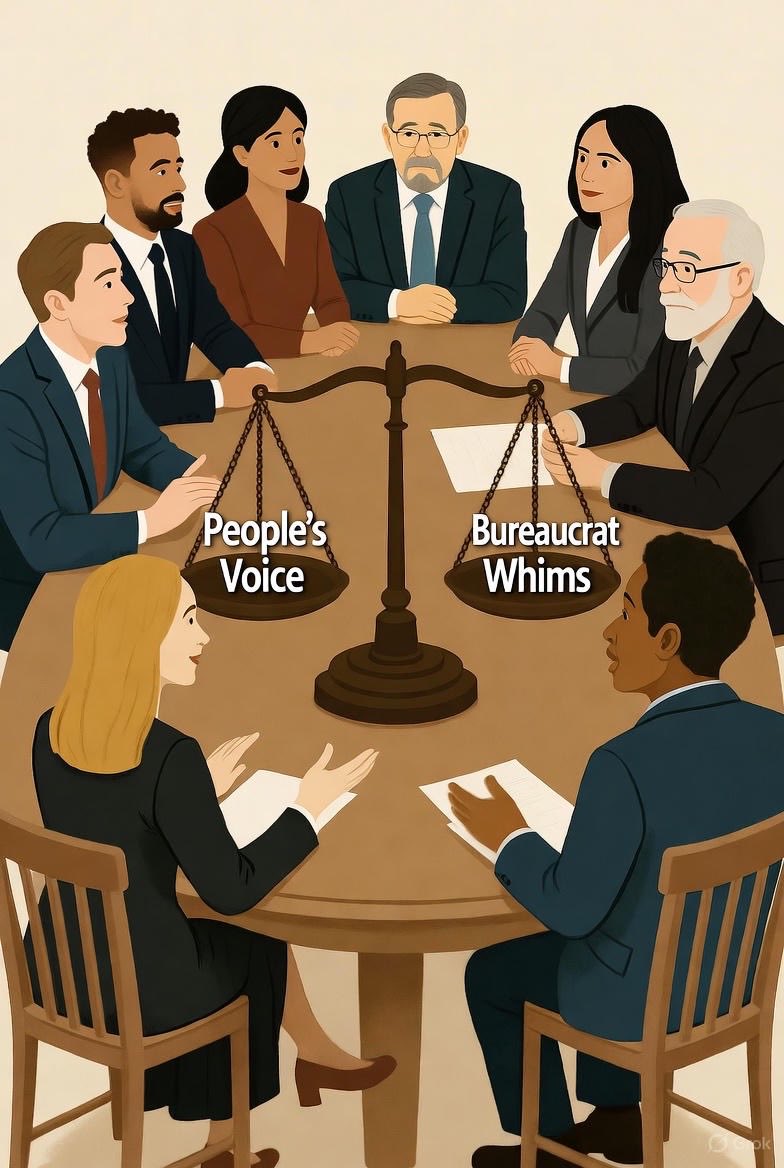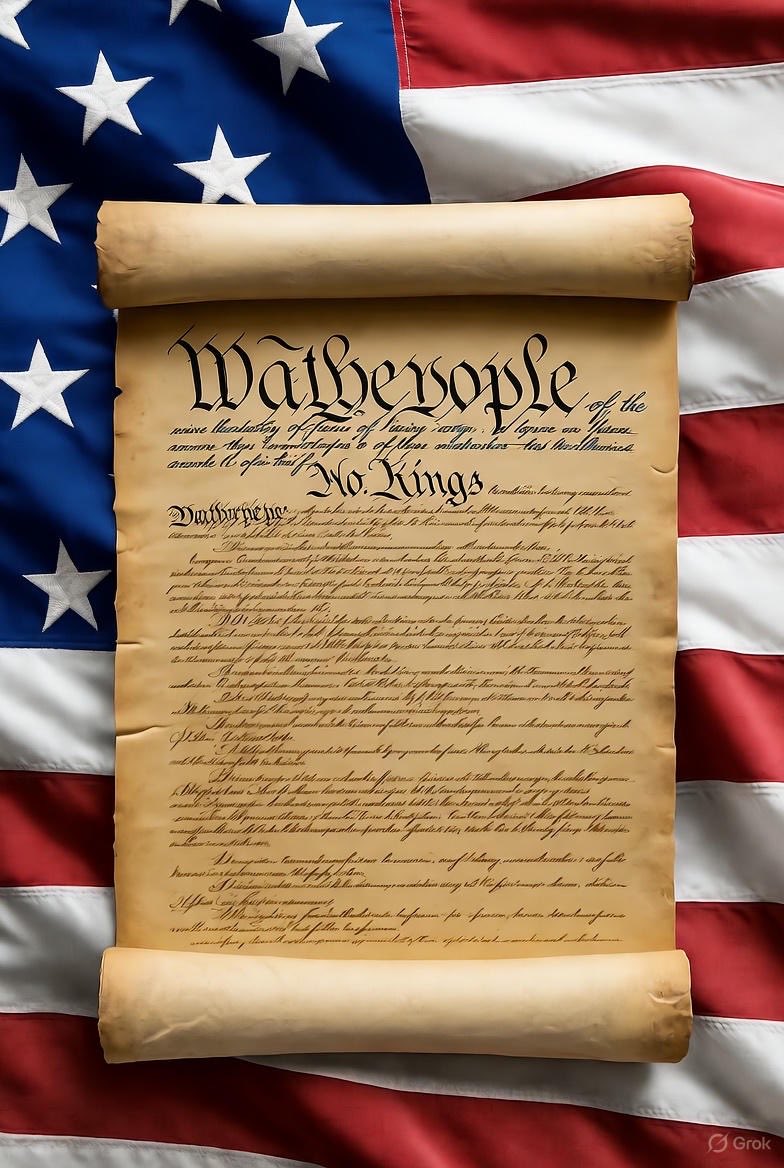🧵1/ The cry of “No Kings” echoes through American history
It’s a reminder that power belongs to the people, not unaccountable rulers
Today, that principle is under threat—not from wearers of crowns, but from federal bureaucrats who make binding laws without ever facing a vote
It’s a reminder that power belongs to the people, not unaccountable rulers
Today, that principle is under threat—not from wearers of crowns, but from federal bureaucrats who make binding laws without ever facing a vote

2/ The Constitution vests lawmaking power in Congress, elected by you
Yet federal agencies churn out roughly 100,000 pages of binding regulations—effectively laws—every year
These bureaucrats, who never stand for election, dictate how Americans live and work
That’s not liberty
That’s despotic rule by fiat
Yet federal agencies churn out roughly 100,000 pages of binding regulations—effectively laws—every year
These bureaucrats, who never stand for election, dictate how Americans live and work
That’s not liberty
That’s despotic rule by fiat

3/ Examples are wide-ranging but include EPA’s sweeping environmental rules, OSHA’s workplace mandates, or the FDA’s product restrictions
These agencies often bypass Congress, creating binding rules that carry the force of law
In 2024 alone, over 3,000 new regulations were issued
Who elected these rulemakers?
Nobody
Like kings
These agencies often bypass Congress, creating binding rules that carry the force of law
In 2024 alone, over 3,000 new regulations were issued
Who elected these rulemakers?
Nobody
Like kings

4/ This is where the REINS Act comes in
It’s simple: any major regulation (with an economic impact of $100M+) must get a vote in Congress before it takes effect
No more backdoor lawmaking
Congress—your elected senators and representatives—takes back its constitutional duty
It’s simple: any major regulation (with an economic impact of $100M+) must get a vote in Congress before it takes effect
No more backdoor lawmaking
Congress—your elected senators and representatives—takes back its constitutional duty

5/ The REINS Act isn’t about red tape; it’s about accountability
If a regulation is truly necessary, Congress can debate and approve it
If it’s a power grab by unelected elites, it gets stopped
That’s how we ensure the people’s voice matters—not the whims of bureaucrats
If a regulation is truly necessary, Congress can debate and approve it
If it’s a power grab by unelected elites, it gets stopped
That’s how we ensure the people’s voice matters—not the whims of bureaucrats

6/ “No Kings” *should* mean no one makes law without answering to the people through regular elections
Letting unelected bureaucrats make laws—to the tune of 100,000 pages a year—violates that principle
The REINS Act would restore it by putting lawmaking back where it belongs: with Congress, accountable to you
Let’s pass it and send a clear message
🇺🇸 #REINSAct
Letting unelected bureaucrats make laws—to the tune of 100,000 pages a year—violates that principle
The REINS Act would restore it by putting lawmaking back where it belongs: with Congress, accountable to you
Let’s pass it and send a clear message
🇺🇸 #REINSAct

7/ Please pass this message along if you agree that the American people should never be subject to laws passed by the unelected—whether royal or bureaucratic
• • •
Missing some Tweet in this thread? You can try to
force a refresh










